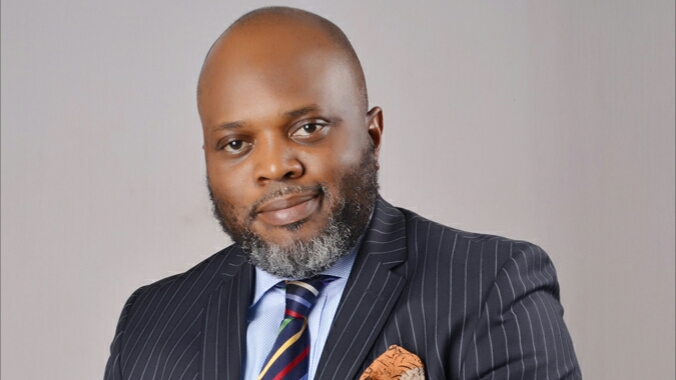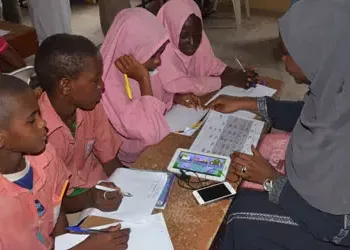“What then is economic development? A society develops economically as its members increase jointly their capacity for dealing with the environment. This capacity for dealing with the environment is dependent on the extent to which they understand the laws of nature (science), on the extent to which they put that understanding into practice by devising tools (technology), and on the manner in which work is organised”. – Walter Rodney
It is a fact, that the economies and societies of the subcontinent are the way they are today because past approaches have not worked, and no one seems to be thinking of how to radically change them. We are told that we need to borrow from abroad to fix the most basic issues rather than deploy our internal assets. They say we should build our financial markets to lend to our people because access to credit is the issue. We have become addicted to foreign investments from wherever they may come, even if our own people fritter our resources abroad. They say that once our banking sector is solid, all else will fall in place. Some say inflation is our problem and once tackled, the invisible hand will allocate our resources. For years we have also been impressed upon that once our youths become entrepreneurs, hustling from street to street with foreign made goods, we will attain socioeconomic development. In 1986, Ibrahim Babangida sold Nigeria into an ideology that deescalated the provision of public goods, led to the mass sacking of public servants and the eventual privatisation of companies set up to ensure the wellbeing of Nigerian citizens. Today, there are disciples of this ideology who say all we need to do is solve ‘our dollar problem’, by floating the Naira, our sovereign currency. Once floated, they say, everything will fall in place. We can see just how over-the-top our socio-economic development strategies are, with concomitant disastrous effects on the ground. Some of them try hard, to dis-link the society from the economy. We can try and imagine whether an economy could develop and leave society – the people – in a lurch. Well, there are such economies around the world. The unacceptable crime rate in South Africa is one example, much as I believe that economy is the most sophisticated in Africa. Majority of the people have been left behind.
Today I am interested in unpacking a definition of economic development that is close to my heart, and that keeps coming back to me whenever I think about the subject. It is a definition that keeps regurgitating through my mind, and I find myself often chewing on it for its richness, the way a ruminant will pass grass from one stomach to another and back in its buccal cavities. I just think it is a brilliant, prescient and timeless definition of economic development and we have been blindsided to its beauty perhaps because of the author. Walter Rodney is the Guyanese historian and academician, who was assassinated at Georgetown, Guyana at barely 38 years. He was left-leaning, a socialist at the time, and a member of the Working People’s Alliance. Perhaps because of this leftist predisposition, the work of people like Rodney have either been totally rubbed out or at best, hushed. Still, this definition of economic development, for me, is worth unearthing, for its universality, depth, and unbiasedness and especially for its focus on people. It is actually about how the people must development themselves, while all else fall in place. I believe most other definitions and approaches have it in the opposite direction.
Rodney says a society develops economically as its members increase jointly their capacity for dealing with the environment by understanding the laws of nature (science). This part of the definition focuses the task of economic development on knowledge. It speaks to the need for capacity building as part of societal culture. And it emphasises the need to DIY (do-it-yourself). Unfortunately, in Nigeria today and most other black African nations, we still borrow money from abroad to train our children. Many politicians even embezzle such money, heaping curses on their own generations. If a people should jointly increase their capacity for science so as to be able to create livable environments and to conquer the elements, we should never have to borrow from abroad for basic stuff. For in borrowing, we put ourselves down and tell the world just how mindless we are. What a people should do is to document events and navigate the elements in the environment, beyond mythology. You can see that Rodney is not talking about the economy here, but about the environment, of which the economy is only a subset. There is an economic environment yes, but before the economic environment is a physical, political and social environment. A people should know when not to build their houses on floodplains, why they shouldn’t stay on the open field or under a tree in a thunderstorm, how they should be mindful of bushfires in dry season, what to do to keep wild animals away, what type of soil to plant their food for maximum yield, and so on.
The second part of the quest for economic development, according to Rodney, is that “…this capacity for dealing with the environment, is dependent on …the extent to which they put that understanding (science) into practice by devising tools (technology).” In this part, Rodney says it is not enough to understand the laws of nature, but a society must also organise itself to produce the tools that enable it to navigate those elements that it has noticed and understood.
Lastly, Rodney talked about how work is organised. That is how he concluded the definition. I wondered about this part for a long time. Is it just a fallout of his socialist leanings? But in time I realised just how important it is for a society, to be mindful that critical sectors are manned. Nigeria is a typical example. 15 million odd children out of school, and rather than worry about getting social services to herd them back to school and ensuring that there are hundreds of thousands of teachers to teach them, nobody cares and we are abroad looking for loans and polishing and shining our financial sector for ‘financial inclusion’. We now have a great problem with border and inland security and rather than bite the bullet and employ the youths in security services so that if need be, the whole place should be crawling with security people, we ignore than and decide that we ‘have a dollar problem’. How else will dollar come in through tourism and investment when the country is unsafe? So, it is very important for leaders to know that the critical sectors that provide the foundation for economic development is being adequately manned – education, security, housing sector, and food security.
This definition is about the very foundation of economic development. It is about how a nation may develop organically. It is about how a society may own the trajectory for its own development. It is about factor substitution – how a society should use what it has to cover for what it does not. It is about optimisation of resources, in ensuring that no resource is lying about idly without being adequately applied. It is about the human mind, because at every step of the way, this most-important resource is being applied – in science, in technology, in organising the society. This approach is far superior to what we apply in Nigeria and parts of Africa, where we focus on what is in the ground and our waters; mineral resources that we cannot exploit ourselves.
Looking at this definition, one may rightly conclude that we have not yet started on our journey to socioeconomic development. We are merely dancing around the subject.





